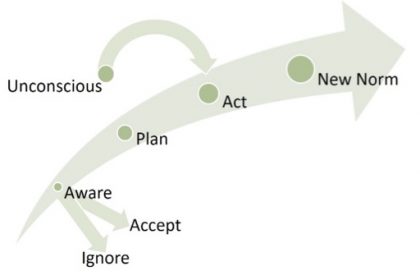Because the first blog covered planning based on some assumptions, let’s now look at the next step, persistence, based on a few assumptions: you have already done the planning; you know you want this; you are still willing to spend time and yes, money, to build a business. Given this next set of assumptions, let’s explore how persistence plays a role in building your coaching practice.
Persistence – Funny as it may seem, even after the planning and with the assumptions above, one of the big challenges is acting on the plan. Where does hesitation come from? Sometimes it is a fear of either failure or success, could be feeling you do not know enough, or it might be a budget issue. If it is fear, ask yourself what the worst outcome could be, the best, and the most likely. Often that is enough to give yourself the perspective that fear is something to channel in to creating what you want for your business. Knowledge comes with taking the steps, so consider how much you have already learned and where it makes sense, go to the resources available. Money is a reality and the good news is that a minimal amount gets you going. If money is still tight, look for options to do related work on the side to earn the extra funds. Acting on the plan becomes easier when you plan both specific action steps and the day and time for doing it. As you progress, you naturally build confidence. Surround yourself with others who support your goals and believe in your abilities.
Have you ever thought about the work you have done and wondered why you are not seeing the result? In this case, chances are that building this business is a process that takes time. When someone hires a coach, they seek someone with whom they are comfortable. Experience the necessary level of comfort might require having spoken with you or at least hearing you speak, it might mean seeing information about you, hearing your name multiple times, or getting a reference. This is where persistence becomes a key trait for success. Continue doing the work over time and you will see results. As you go, accept your mistakes and learn from each one. Look for ways to improve your approach. Track what works and what doesn’t work. Consider the goal of becoming an expert in how to build your business. Focus on what you do control and do it better each time. Sometimes new Coaches worry about how to respond when asked about their experience. Share your background. People hire you as a Coach because of your work and life experience combined with your focus on gaining the tools to coach effectively. Focus on your business goals so that you are proactive and moving towards achievement. Focus on options and opportunities persistently and you will naturally create what you believe is possible.
Part 3 is about follow-through and follow-up so come back for your next visit soon.


